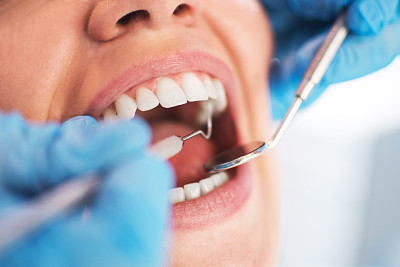Summary: Dental fillings are a common procedure aimed at restoring damaged teeth, but they require appropriate care before and after to ensure optimal healing and longevity. This article outlines essential guidelines to consider, covering preparation for the procedure, what to expect during the filling process, post-treatment care, and the importance of regular dental check-ups. Each section provides insights and tips that empower patients to take charge of their oral health, consequently ensuring the effectiveness of the filling and preventing future dental issues.
1. Preparation Before Dental Filling Procedure

Preparing for a dental filling is a crucial step in ensuring the procedures success. The first aspect involves communicating openly with your dentist about any concerns or previous dental experiences. Share your medical history, especially any allergies or medications you are currently taking, as this information can significantly affect the procedure.
Next, make an effort to maintain impeccable oral hygiene leading up to your appointment. Brushing, flossing, and using an antibacterial mouthwash not only reduce bacteria but also minimize the risk of infections during and after the filling procedure. A clean mouth can create a better environment for the dentist to work in.
Finally, consider your schedule on the day of the appointment. Plan to have someone accompany you, especially if sedation will be used. Having a friend or family member can help reduce pre-procedure anxiety and ensure you have transportation home after the procedure.
2. Understanding the Dental Filling Process
Understanding what happens during a dental filling can alleviate any anxiety associated with the procedure. Initially, the dentist will examine the affected tooth and take X-rays if necessary. This helps them determine the extent of the decay and plan the treatment appropriately.
Once the procedure begins, the dentist will administer local anesthesia to numb the area around the tooth to reduce discomfort. After numbing takes effect, the dentist will drill away any decayed material and clean the cavity before filling it with the desired material, such as composite resin or amalgam.
In addition to the materials used, the dentist may take steps to ensure the filling bonds well with the tooth. This process can involve etching the tooth surface or applying a bonding agent. Understanding each step can help you feel more at ease during the procedure and know what to expect.
3. Post-Treatment Care for Dental Fillings
Once the dental filling procedure is complete, following post-treatment care guidelines is vital for optimal healing. Initially, you should avoid eating or drinking for a couple of hours, especially hot or cold items, until the anesthesia wears off. This helps prevent accidental biting of the cheek or tongue, which can lead to injury.
Next, you might experience some sensitivity in the filled tooth, particularly to hot or cold temperatures. If this sensitivity persists beyond a few weeks or intensifies, contact your dentist for further evaluation. It may indicate that the filling requires adjustment.
Lastly, maintain good oral hygiene habits by brushing and flossing daily, focusing on the filled area to prevent any accumulation of plaque or food particles. Scheduling follow-up appointments with your dentist will also aid in monitoring the filling and ensuring the overall health of your teeth.
4. The Importance of Regular Dental Check-Ups
Regular dental check-ups play an indispensable role in maintaining oral health post-filling. Your dentist can identify any potential issues early, which is particularly crucial for patients with fillings, as surrounding teeth may be more vulnerable to decay.
During these check-ups, the dentist will assess the condition of your fillings and other dental work. They will also provide professional cleaning, which removes plaque and tartar that regular brushing may miss. This cleaning helps to prevent cavities and gum disease.
Additionally, education on the latest dental care practices can empower patients to make informed decisions regarding their oral health. Such interactions can be instrumental in acquiring knowledge on diet, proper cleaning techniques, and new dental technologies.
Summary:
In summary, taking proactive steps before and after dental filling procedures is essential for maintaining optimal oral health. From effective communication with your dentist to following post-treatment care and regular check-ups, these measures can greatly impact the longevity and effectiveness of dental work.
This article is compiled by Vickong Dental and the content is for reference only
Vickong Dental
Vickong Dental is a large medical group established in Hong Kong in 2008 by professors from well-known medical universities in Guangdong and Hong Kong, as well as medical doctors from key national '985' universities (including Master's supervisors and senior professors). The chain of branches brings together expert dentists with PhDs and Master's degrees from Hong Kong and Mainland China, committed to providing high-quality dental treatment.
"Vickong Dental Practices the University Motto of 'Healing and Serving Society,' with a Stable Operation for Sixteen Years. It Has Been honored with Hong Kong Enterprise Leaders's Choice,' and is a Global Trusted Implant Center for the Nobel Implant System. Recommended by Hong Kong Metro Broadcast and Guangdong Television, it Serves Customers from Over Thirty Countries and Regions, Gaining the Trust and Favor of Citizens from the Guangdong-Hong Kong-Macau Greater Bay Area and Surrounding Cities.

Thousands of customers' unanimous praise
The most recognized and highly recommended dental service by customers in the Guangdong-Hong Kong-Macau Greater Bay Area
We Ensure You Receive Detailed Care and Attention Here
Hong Kong standards, Shenzhen prices, Your Trusted English-speaking dentists

Vickong Dental Medical-Grade Instrument Disinfection Process
Vickong Dental Medical-Grade Instrument Disinfection Process

Vickong Dental Chain: A Warm and Comfortable Environment for Treatment






Appointment Hours

Q&A
Why choose Vickong Dental?
Vickong Dental practices the university motto 「Medicine to Benefit Society」, with each branch bringing together highly qualified dentists with doctoral and master’s degrees from Hong Kong and the Mainland, and has maintained seventeen years of steady operation。Recipient of 「2024 Hong Kong Enterprise Leaders Brand」, 「2025 Hong Kong Enterprise Leaders Brand」, a Nobel Biocare Global Trusted Implant Center, and a brand recommended by Metro Radio Hong Kong and Guangdong TV。
To date, we have served customers from more than thirty countries and regions,earning exceptionally high word-of-mouth recognition and trusted recommendations from residents across the Guangdong-Hong Kong-Macao Greater Bay Area and surrounding cities
We have eight major branches in Zhuhai、Shenzhen,and a consultation and service assurance center in Hong Kong,so you can book a free consultation at any time for any questions,which is very reassuring.
If I do not accept the quotation after the CT scan, will I be charged??
No! As long as the actual treatment has not started, you will not be charged any fees.
Will there be any additional charges during the treatment process?
No, there won’t be any additional charges. Before treatment begins, we will clearly explain the treatment plan and its corresponding fees. Only after the patient agrees and signs the consent form will we proceed with the dental service.
Can I pay in Hong Kong dollars?
Yes. Vickong Dental accepts payment in Hong Kong dollars. The amount will be converted based on the exchange rate of the day, and the applicable rate will be clearly communicated to you in advance.
Can I reschedule my appointment at any time?
Yes. Please contact us via **WeChat** or **WhatsApp** as early as possible, providing your original appointment time and details, along with your preferred new date and time slot for rescheduling.













